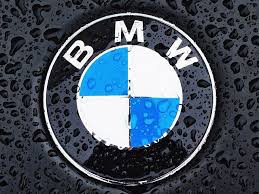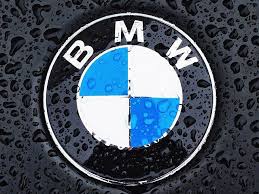
Germany’s BMW AG wants to make most of its future min and small cars run on electricity and for this purpose the automaker is in search of partners and is holding talks with other automakers “around the world” such that the company is able to reduce the cost of manufacturing those electric vehicles in the future, management board member Peter Schwarzenbauer told the media.
“We are talking to many OEMs (manufacturers) around the world, not only in China, (about) how to electrify smaller cars,” Schwarzenbauer said. “There’s no final conclusion on it.”
A potential joint venture about the manufacturing of Mini vehicles in China was being discussed by it with potential partners, disclosed the Chinese automaker Great Wall Motor Co last month. No Mini vehicles are manufactured by BMW outside of Europe at the present moment.
There were no comments or counter arguments made by Schwarzenbauer about the Great Wall situation and said that “this was speculation.”
There were a number of challenges of designing and manufacturing smaller electric cars, according to him, compounded by not only the rising high costs of such manufacturing but also in designing smaller cars that would be able to accommodate large enough batteries to allow such vehicles long rage traveling abilities.
Costs of clean vehicle technology have earlier been shared by BMW with rivals when it has worked with them. with respect of the development of fuel cell vehicles, there is an understanding and partnership between BMW and the Japanese automaker Toyota Motor Corp.
New electric powered Mini vehicles are being planned by BMW to be launched sometime in 2019. Schwarzenbauer said that eventually, an entirely new electric brand can be created out of Mini targeting the urban consumers.
In the United States, there has been a shift in demand for many of the smaller cars as consumers look to prefer sport-utility vehicles and trucks and this has resulted in a fall of sale by 10 percent in the sale of the Mini in the U.S.
“It’s really only in the U.S. where we are facing this with Mini,” Schwarzenbauer said.
Schwarzenbauer said that the company does not believe that adding more SUVs to the Mini line up would solve the problem in the U.S. Instead, “the way for Mini in the U.S. is ... building the Mini brand in the direction of the electric urban mobility company,” he said.
The company is also intent on launching a self-driving car by 2021which could probably be priced below the $100,000 mark, Schwarzenbauer said talking on a separate issue.
Schwarzenbauer said that the BMW fleets would make use of the iNEXT model and it would also be made available for sale to individuals and ride hailing companies. The model was launched earlier this year.
“By 2021, you will have a lot of people who want to own this car,” he said. “It will be a normal price. We are thinking of scaling this. To bring a $150,000 electric car is nice, but it will not really scale.”
(Source:www.reuters.com)
“We are talking to many OEMs (manufacturers) around the world, not only in China, (about) how to electrify smaller cars,” Schwarzenbauer said. “There’s no final conclusion on it.”
A potential joint venture about the manufacturing of Mini vehicles in China was being discussed by it with potential partners, disclosed the Chinese automaker Great Wall Motor Co last month. No Mini vehicles are manufactured by BMW outside of Europe at the present moment.
There were no comments or counter arguments made by Schwarzenbauer about the Great Wall situation and said that “this was speculation.”
There were a number of challenges of designing and manufacturing smaller electric cars, according to him, compounded by not only the rising high costs of such manufacturing but also in designing smaller cars that would be able to accommodate large enough batteries to allow such vehicles long rage traveling abilities.
Costs of clean vehicle technology have earlier been shared by BMW with rivals when it has worked with them. with respect of the development of fuel cell vehicles, there is an understanding and partnership between BMW and the Japanese automaker Toyota Motor Corp.
New electric powered Mini vehicles are being planned by BMW to be launched sometime in 2019. Schwarzenbauer said that eventually, an entirely new electric brand can be created out of Mini targeting the urban consumers.
In the United States, there has been a shift in demand for many of the smaller cars as consumers look to prefer sport-utility vehicles and trucks and this has resulted in a fall of sale by 10 percent in the sale of the Mini in the U.S.
“It’s really only in the U.S. where we are facing this with Mini,” Schwarzenbauer said.
Schwarzenbauer said that the company does not believe that adding more SUVs to the Mini line up would solve the problem in the U.S. Instead, “the way for Mini in the U.S. is ... building the Mini brand in the direction of the electric urban mobility company,” he said.
The company is also intent on launching a self-driving car by 2021which could probably be priced below the $100,000 mark, Schwarzenbauer said talking on a separate issue.
Schwarzenbauer said that the BMW fleets would make use of the iNEXT model and it would also be made available for sale to individuals and ride hailing companies. The model was launched earlier this year.
“By 2021, you will have a lot of people who want to own this car,” he said. “It will be a normal price. We are thinking of scaling this. To bring a $150,000 electric car is nice, but it will not really scale.”
(Source:www.reuters.com)














